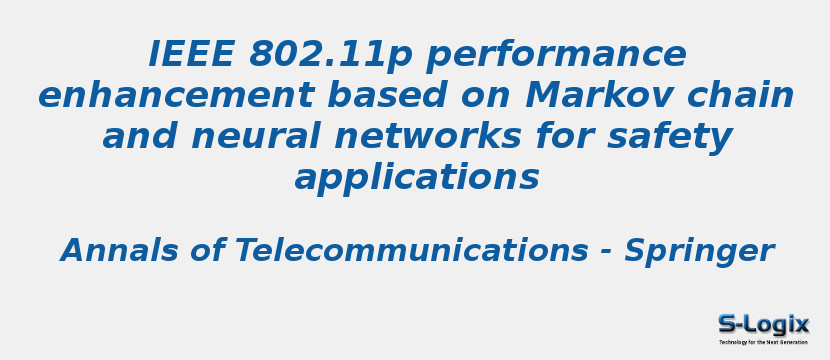Research Area: Vehicular Ad Hoc Networks
Vehicular communication is recently considered as one of the key future technology to improve the safety of vehicles, the efficiency of traffic and the comfort for both drivers and pedestrians. Vehicular communications, based on IEEE 802.11p, use the Enhanced Distributed Channel Access (EDCA) algorithm to support different levels of Quality of Service (QoS). In this paper, a machine learning neural network with Markov chain approach is proposed to ensure the delivery of urgent safety messages to the receiver whatever the situation of the network. We propose to control the rate of periodic messages in Control Channel (CCH), by modifying the back-off parameters according to the state of the buffer. We also use Radial Basis Function Neural Network (RBFNN) to adjust the EDCA back-off parameters, using the following parameters: the priority of message (P), the sensitivity of road (S), the threshold of buffer (T), and the type of vehicle (V). Our simulation is done using SUMO 0.22 simulator, NS 2.34 and awk scripts; the simulation was applied on Hamra area (Lebanon). The results show that our proposed models perform better compared to the IEEE 802.11p in terms of packet delivery ratio, throughput and end-to-end delay.
Keywords:
Author(s) Name: Fadlallah Chbib, Walid Fahs, Jamal Haydar, Lyes Khoukhi & Rida Khatoun
Journal name: Annals of Telecommunications
Conferrence name:
Publisher name: Springer
DOI: 10.1007/s12243-021-00846-y
Volume Information: volume 76, pages 617–632 (2021)
